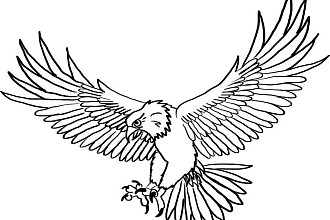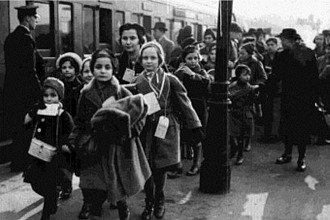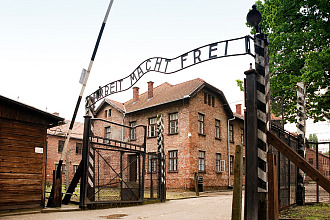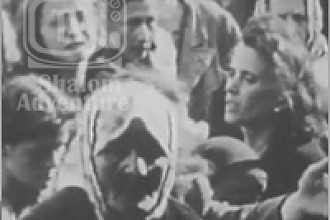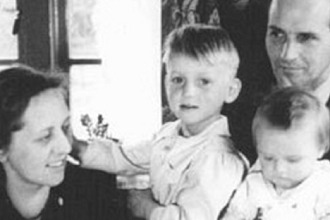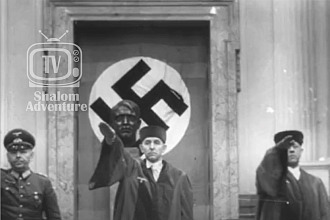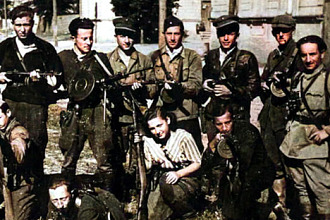Jewish communities existed continuously in Europe for over 2,000 years. Their social and religious distinctiveness made them persistent targets for persecution. The emergence of Christianity as the dominant religion in Europe intensified the persecution of Jews. Since both the religious and political life of Europe became organized around the Christian faith, Jews were seen as outcasts, the deniers and "killers" of Christ. For millions of European Christians, for over 1600 years, the hatred and persecution of Jews was religiously sanctioned. Anti-Semitism intensified during the l9th and 20th century industrialization of Europe as Jews participated more directly in European economic and social life. By the time the Nazis came to power in Germany, the patterns of economic, social, and personal persecution of European Jews were well established.
After its defeat in World War I, Germany was humiliated by the Versailles Treaty, which reduced its prewar territory, significantly reduced its armed forces and demanded the recognition of its guilt for the war. The treaty stipulated that Germany pay reparations to the Allied powers. With the German Empire destroyed, a new parliamentary government called the Weimar Republic was formed. The republic suffered from economic instability, which grew worse during the worldwide depression after the New York stock market crash in 1929. Massive inflation followed by very high unemployment heightened existing class and political differences and began to undermine the government. On January 30, 1933, Adolf Hitler, leader of the National Socialist German Workers (Nazi) Party, was named chancellor of Germany. The Nazi Party had taken advantage of the political unrest in Germany to gain an electoral foothold. The Nazis incited clashes with the communists, who many feared, disrupted the government with demonstrations, and conducted a vicious propaganda campaign against its political opponents -the weak Weimar government, and the Jews, whom the Nazis blamed for Germany's ills.
By the end of 1934, Hitler was in absolute control of Germany, and his campaign against the Jews was in full swing. The Nazis claimed the Jews corrupted pure German culture with their "foreign" and "mongrel" influence. They portrayed the Jews as evil and cowardly, and Germans as hardworking, courageous, and honest. The Jews, the Nazis claimed, who were heavily represented in finance, commerce, the press, literature, theater, and the arts, had weakened Germany's economy and culture. The massive government-supported propaganda machine created a racial anti-Semitism, which was different from the longstanding anti-Semitic tradition of the Christian churches.
The Germans viewed the Eastern Jews with particular distain. Throughout the nineteenth century and into the twentieth a four-tiered social structure existed in Eastern Europe. It consisted of Poles, Ukrainians, Ethnic Germans and Jews. The Jews were considered by the others as last in the social order. Prejudice towards the Jews became deeply rooted. Hitler accused the Eastern Jews with sympathies for Marxism and made the case that the Jews stood in the way of Germany becoming a great nation again.
The seeds of genocide were successfully sewn by Christen Europe and the Nazis against the Jews, giving rise to the Holocaust. Nazi racial anti-Semitism and propaganda amplified and manipulated these patterns, ultimately adding the deadly tenet that all Jews must be eliminated. Whether motivated by fear of Germany or their own resentment of the Jews, other countries were complacent in spreading the seeds on genocide.
Originally found here
Picture originally found here
Posted on Shalom Adventure by: Brenda Miller

_medium.jpg)




